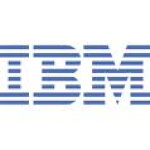- Industrie: Computer
- Number of terms: 98482
- Number of blossaries: 0
- Company Profile:
Sometimes referred to as “Big Blue” IBM is a multinational corporation headquartered in Armonk, New York. It manufactures computer hardware and software and provides information technology and services.
(1) A generic term for the object type that refers to a database file, a device file, or a save file. The system-recognized identifier for the object type is *FILE.<br />(2) A collection of related data that is stored and retrieved by an assigned name. See also data set.
Industry:Software
(1) A set of descriptive and operational information associated with a requirement when the requirement is created. A requirement type serves as an outline for all requirements of the same type and is useful for classifying and grouping similar requirements in a project. Each requirement type has its own set of user-defined attributes.<br />(2) A categorization of requirements based on common characteristics and attributes. Sometime requirement types are based on the requirement source or area of effect for example, stakeholder need, feature, use case, supplementary requirement, documentation requirement, hardware requirement, software requirement, and so on. Requirements may also be categorized based on the dimension of software quality that they represent for example, FURPS+.
Industry:Software
(1) A global lock manager that resides in its own address space, and gives the option of keeping most of its control blocks in local storage instead of in the common storage area (CSA).<br />(2) A z/OS subsystem that DB2 uses to control communication and database locking.<br />(3) A subsystem in an z/OS environment that provides lock management, used by IMSs to share data.
Industry:Software
(1) A set of events that meet certain criteria defined by event group filters, which include constraints that are expressions that define the filter conditions. Event console operators can monitor event groups that are relevant to their specific areas of responsibility.<br />(2) A container for inbound events that enables you to group events without the overhead of creating a new monitoring context. Event groups are purely a visual construct and are not represented in the monitor model.<br />(3) A set of criteria that is applied to events to identify a subset of those events. The criteria include constraints expressions that define the filter conditions.
Industry:Software
(1) A global transaction that adheres to the X/Open standard for distributed transaction processing (DTP).<br />(2) In an XA-enabled environment, a unit of work involving one or more resource managers that is coordinated by a transaction manager. See also XA.
Industry:Software
(1) A set of host language statements and SQL statements that is processed by an SQL precompiler.<br />(2) A set of instructions that are written in a programming language and must be translated into machine language before the program can be run.<br />(3) In communications, the program that starts a session with a remote system. See also target program.<br />(4) In DB2 for i5/OS, the source in an i5/OS source file member used to create an SQL program.
Industry:Software
(1) A graphic symbol whose appearance conveys information, for example, the vertical and horizontal arrows on cursor keys that indicate the directions in which they control cursor movement.<br />(2) An image, usually of a character, in a font. See also character, graphic character.
Industry:Software
(1) A set of individual components, such as people, machines, or methods, that work together to perform a function.<br />(2) A computer and its associated devices and programs.<br />(3) A single node or a cluster of nodes acting as a single computing entity. A system in this sense may run multiple instances of the operating system. See also cluster node.<br />(4) A functional unit, consisting of one or more computers and associated software, that uses common storage for all or part of a program and also for all or part of the data necessary for the execution of the program. A system can be a stand-alone unit, or it can consist of multiple connected units.
Industry:Software
(1) A graphical implementation of an activity, including actions, execution flow, and external calls. An activity diagram contains symbols that specify the steps, the order of the steps, and the logic that determines how they execute. See also activity.<br />(2) A diagram that represents the performance of a task or duty in a workflow, or the execution of a statement in a procedure.<br />(3) See activity graph.<br />(4) A UML behavioral diagram that models the dynamic parts of a system by showing the steps or tasks that constitute a process.
Industry:Software
(1) A set of information on a diskette or tape that describes the contents of the diskette or tape.<br />(2) The label or data set label that precedes the data records on a unit of recording medium.
Industry:Software
